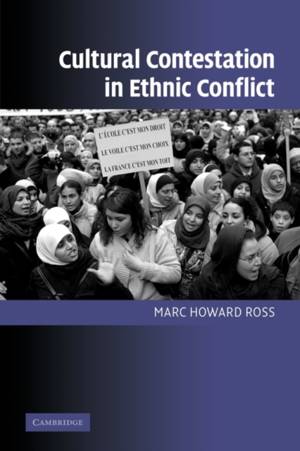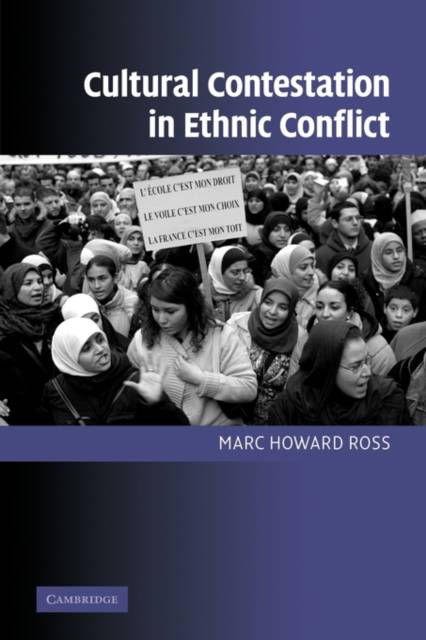
- Afhalen na 1 uur in een winkel met voorraad
- Gratis thuislevering in België vanaf € 30
- Ruim aanbod met 7 miljoen producten
- Afhalen na 1 uur in een winkel met voorraad
- Gratis thuislevering in België vanaf € 30
- Ruim aanbod met 7 miljoen producten
Zoeken
Omschrijving
Ethnic conflict often focuses on culturally charged symbols and rituals that evoke strong emotions from all sides. Marc Howard Ross examines battles over diverse cultural expressions, including Islamic headscarves in France, parades in Northern Ireland, holy sites in Jerusalem and Confederate flags in the American South to propose a psychocultural framework for understanding ethnic conflict, as well as barriers to, and opportunities for, its mitigation. His analysis explores how culture frames interests, structures demand-making and shapes how opponents can find common ground to produce constructive outcomes to long-term disputes. He focuses on participants' accounts of conflict to identify emotionally significant issues, and the power of cultural expressions to link individuals to larger identities and shape action. Ross shows that, contrary to popular belief, culture does not necessarily exacerbate conflict; rather, the constructed nature of psychocultural narratives can facilitate successful conflict mitigation through the development of more inclusive narratives and identities.
Specificaties
Betrokkenen
- Auteur(s):
- Uitgeverij:
Inhoud
- Aantal bladzijden:
- 388
- Taal:
- Engels
- Reeks:
Eigenschappen
- Productcode (EAN):
- 9780521690324
- Verschijningsdatum:
- 28/05/2007
- Uitvoering:
- Paperback
- Formaat:
- Trade paperback (VS)
- Afmetingen:
- 161 mm x 227 mm
- Gewicht:
- 616 g

Alleen bij Standaard Boekhandel
+ 144 punten op je klantenkaart van Standaard Boekhandel
Beoordelingen
We publiceren alleen reviews die voldoen aan de voorwaarden voor reviews. Bekijk onze voorwaarden voor reviews.











